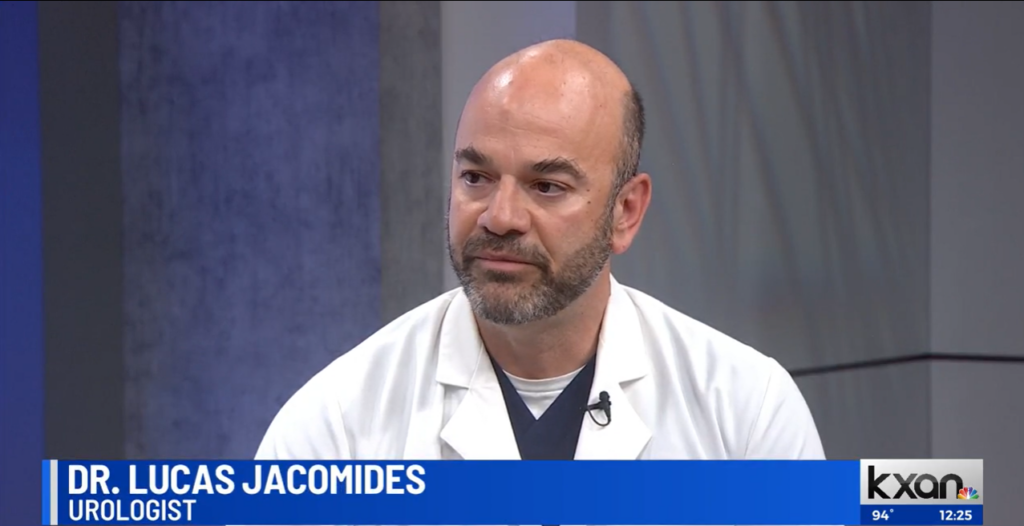
Our approach to male fertility focuses on four aspects of genetic, hormonal, lifestyle, and physiologic factors.
The chance of an otherwise healthy couple conceiving is about 40% at 3 months, 75% at 6 months and 90% at 12 months. We recommend that couples that have tried to conceive without success after one year should seek care from a fertility specialist. Couples in which the female partner is over 35 years old should seek advanced care after 6 months of trying to conceive or if any known factor affecting fertility, such as diabetes or irregular periods, is known.
All patients will have a traditional semen analysis to assess their fertility. This is the most basic test and remains one of the single most important tests to assess male fertility.
Genetic fertility testing at our Austin male fertility center
Our genes play a significant role in who we become and can play an important role in male fertility. A patient’s family history can give us incredible insight into factors that may influence a man’s ability to father children, especially as he ages. Especially in the azoospermic male (someone who has no sperm in his ejaculate), a genetic evaluation is a critical step to determine if infertility can be overcome.
Karyotyping: This test will measure the number and type of chromosomes that a person has. Abnormalities in chromosome number and type can suggest certain forms of infertility.
Cystic fibrosis transmembrane receptor mutations: Although cystic fibrosis remains a relatively uncommon disease. Carriers of this genetic condition can exhibit a form of infertility that causes blockage of sperm from the testicle. This condition remains one of the most common genetic causes of infertility in men.
Y chromosome abnormalities: The Y chromosome determines a male’s gender from conception. This is also where genes that are specifically related to sperm production are located. Some abnormalities in the Y chromosome can be detected and can suggest forms of infertility found in azoospermia. The Y chromosome microdeletion test is a genetic test offered to our patients with severely low sperm concentration and is most useful in patients who have no sperm in their ejaculate. This condition is called azoospermia.
Counsyl™ testing: For all of our patients we also offer genetic testing to help identify a variety of other genetic conditions that may be carried in the genome. Especially when done in conjunction with the partner potential genetic conditions can be uncovered that may affect children in the future.
Hormonal fertility testing for men
Hormones play a very important role in the fertility of both men and women. Hormones are chemical signals released by special glands in the body that can have effects throughout the body and throughout our lives. The predominant sex hormone in men is testosterone, although estrogen and other hormones also play a role. We are able to measure the signals from the brain to the testicles that help regulate the production of testosterone and sperm (LH and FSH). In order to help repair any deficiencies that may exist, we have a variety of medications that we can prescribe. A full hormonal evaluation will include measuring prolactin, testosterone, estrogen, LH, FSH, thyroid function and a variety of other hormones. Normalization of hormone function is often the first step that we will undertake when we find male fertility difficulties.
The management of hormones in men who seek to retain their fertility is much more advanced than is usually performed by the traditional primary care physician or general urologist. It is critical that there is an avoidance of giving testosterone to men who hope to have children as this can significantly impair sperm production. Careful monitoring of hormone replacement in terms of potential side effects and effect is crucial in making sure that this is performed in a safe and effective manner.
Thyroid function is a well-known impactor of fertility in women and we believe that thyroid function should both be tested and normalized in men as well. We will also seek to normalize vitamin D levels.
Contact us today to schedule an appointment to help optimize your male fertility.















